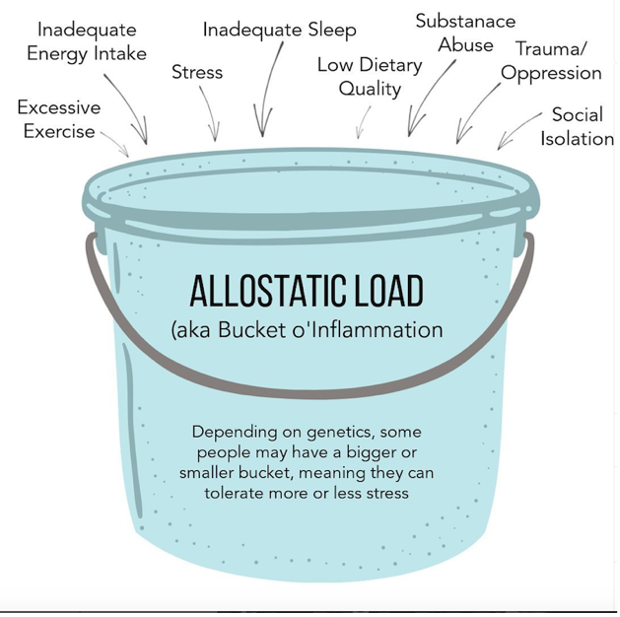Long term chronic stress and the effect on our allostatic load
Allostatic load is a term we are going to hear a lot more about in the future. It is used in the field of psychology and medicine to describe the cumulative wear and tear on the body as a result of chronic stress. It refers to the physiological consequences of chronic exposure to stressors, which can lead to a range of negative health outcomes. The concept of allostatic load highlights the interconnectedness of the mind and body, emphasizing the impact of psychological stress on physical health.

When we experience stress, our bodies release hormones such as cortisol and adrenaline to help us respond to the perceived threat. While this stress response is essential for survival in the short term, chronic stress can lead to dysregulation of these hormonal systems, resulting in a state of chronic arousal known as allostatic load. This prolonged activation of the stress response can have detrimental effects on various bodily systems, including the cardiovascular, immune, and nervous systems.
Research has shown that high levels of allostatic load are associated with an increased risk of developing a wide range of health conditions, including cardiovascular disease, diabetes, depression, and cognitive decline. Individuals with high allostatic load may experience symptoms such as fatigue, insomnia, and difficulty concentrating, as their bodies struggle to cope with the ongoing stressors.
Managing allostatic load is essential for maintaining overall health and well-being. Strategies such as mindfulness meditation, regular exercise, adequate sleep, and social support can help reduce stress levels and prevent the accumulation of allostatic load. By taking proactive steps to manage stress and promote relaxation, individuals can protect themselves from the negative effects of chronic stress on their health.
Allostatic load serves as a reminder of the intricate relationship between stress and health. By understanding the impact of chronic stress on the body, we can take steps to mitigate its effects and promote overall well-being. Prioritizing self-care and stress management can help individuals reduce their allostatic load and lead healthier, more balanced lives.
Remembering that everyone has a different size bucket of stress tolerance and this will affect your allostatic load. Being intentional with you daily routines and practises can help you reduce the stress on your mind and body and reduce your allostatic load. In our fast pace lifestyles these practises are becoming more important to prioritise as part of your overall wellness.
As an exercise physiologist we look holistically at your health and help you develop a health plan to reduce your allostatic load. Movement and exercise are important strategies but should be complimented with other pillars of health including nutrition, sleep and mindfulness practices.
Vicky Graham
Accredited Exercise Physiologist.
True North Wellness
